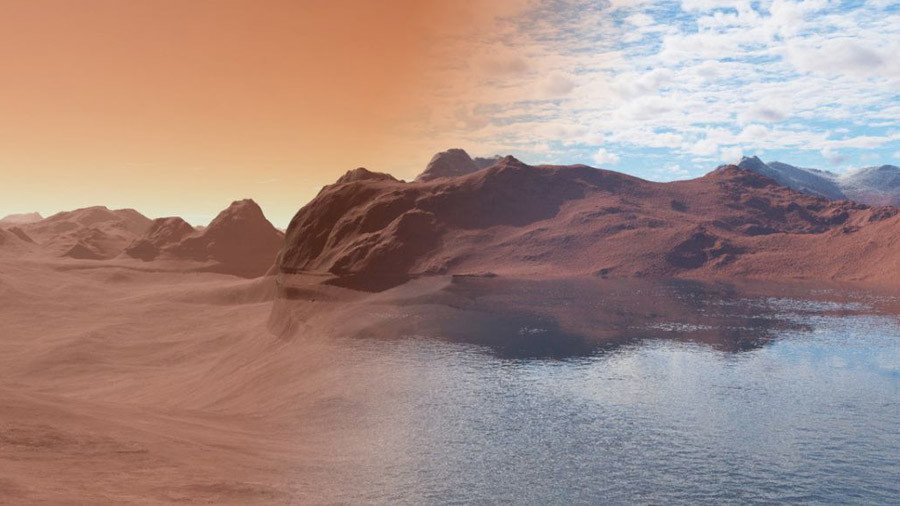How did Mars lose its oceans? Scientist may have cracked the mystery

Mars might not be as dry as previously thought. New research from the University of Oxford suggests the water which once flowed on the Red Planet’s surfaces is actually locked in its rocks.
It has been accepted for some time that streams of water used to flow along the surface of Earth’s barren neighbor. But the reason for the water’s disappearance has never been fully understood.
Some believe Mars is so dry because it lost its protective atmosphere after the collapse of its magnetic field billions of years ago, which resulted in the water being swept away by solar winds, or locked up as subsurface ice.
Now scientists at Oxford’s Department of Earth Science believe the water never really left Mars. Instead, it was absorbed by basalt rocks produced by volcanoes, which in turn increased the planet’s oxidation process, making it impossible for life to flourish.
“People have thought about this question for a long time, but never tested the theory of the water being absorbed as a result of simple rock reactions.
"One reason why Mars lost all of its water, could be in its mineralogy,” said Dr. Jon Wade, NERC Research Fellow in Oxford’s Department of Earth Sciences.
“On Mars, water reacting with the freshly erupted lavas that form its basaltic crust, resulted in a sponge-like effect. The planet’s water then reacted with the rocks to form a variety of water bearing minerals.
"This water-rock reaction changed the rock mineralogy and caused the planetary surface to dry and become inhospitable to life.”
The researchers used computer modeling to see how much water could be removed simply through its reaction with rocks.
It turned out that Martian rocks can hold 25 percent more water than those on Earth. The research suggests the process could have been so strong that the Red Planet’s crust may have absorbed an ocean two miles in depth.
Wade highlighted the importance of analyzing planets at a micro-level.
“When looking for life on other planets it is not just about having the right bulk chemistry, but also very subtle things like the way the planet is put together, which may have big effects on whether water stays on the surface.
"These effects and their implications for other planets have not really been explored.”
















